Table Mountain
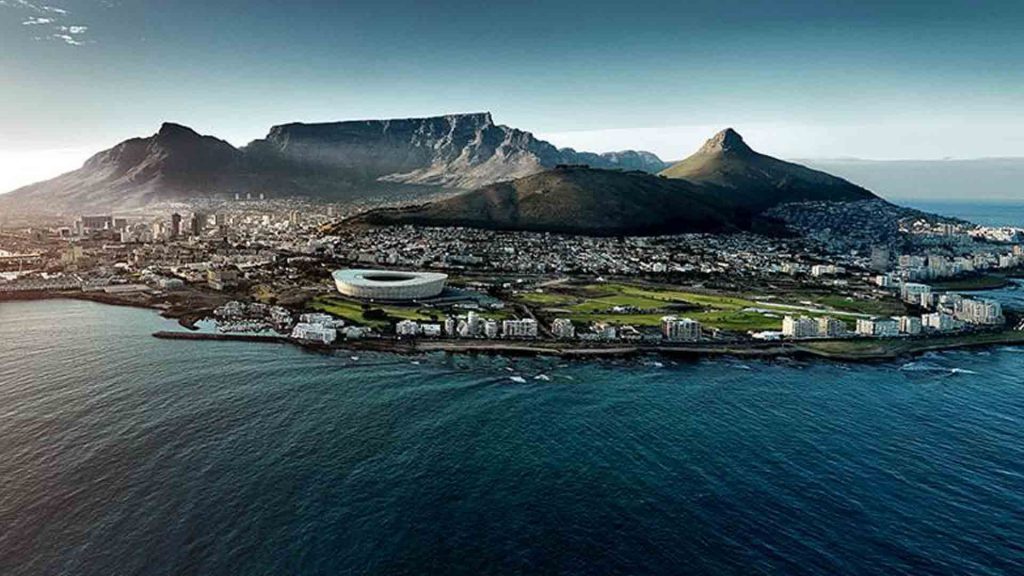
Overview of Table Mountain
Table Mountain is one of South Africa’s most iconic landmarks and a must-visit destination for nature lovers. Located in Cape Town, it offers breathtaking panoramic views of the city, surrounding mountains, and the Atlantic Ocean. The mountain is named for its distinctive flat top, which resembles a table. It is a UNESCO World Heritage Site and has become a symbol of Cape Town.
Activities and attractions on Table Mountain
Visiting Table Mountain provides numerous activities and attractions to explore:
• Cableway: One of the most popular ways to reach the summit is through the Table Mountain Aerial Cableway. The cable car offers a scenic ride and provides stunning views as you ascend to the top.
• Hiking Trails: For the adventurous and nature enthusiasts, there are several hiking trails that lead to the summit of Table Mountain. These trails range in difficulty and offer different perspectives of the mountain and the surrounding landscape.
• Wildlife: The mountain is home to a variety of flora and fauna, including several rare and endemic species. Keep an eye out for the dassie, a rock hyrax that is a common sight on Table Mountain.
• Sunset Views: Watching the sunset from Table Mountain is a truly magical experience. As the sun casts vibrant hues across the sky, you can enjoy a romantic picnic or simply take in the awe-inspiring beauty.
• Abseiling: For thrill-seekers, Table Mountain offers an adrenaline-pumping experience with abseiling. Descend down the vertical cliffs of the mountain under the guidance of experienced instructors.
• Photography: With its stunning vistas and unique rock formations, Table Mountain is a photographer’s paradise. Capture the beauty of Cape Town from different angles and capture memories that will last a lifetime.
To learn more about Table Mountain and its natural wonders, check out the provided link.
Kruger National Park
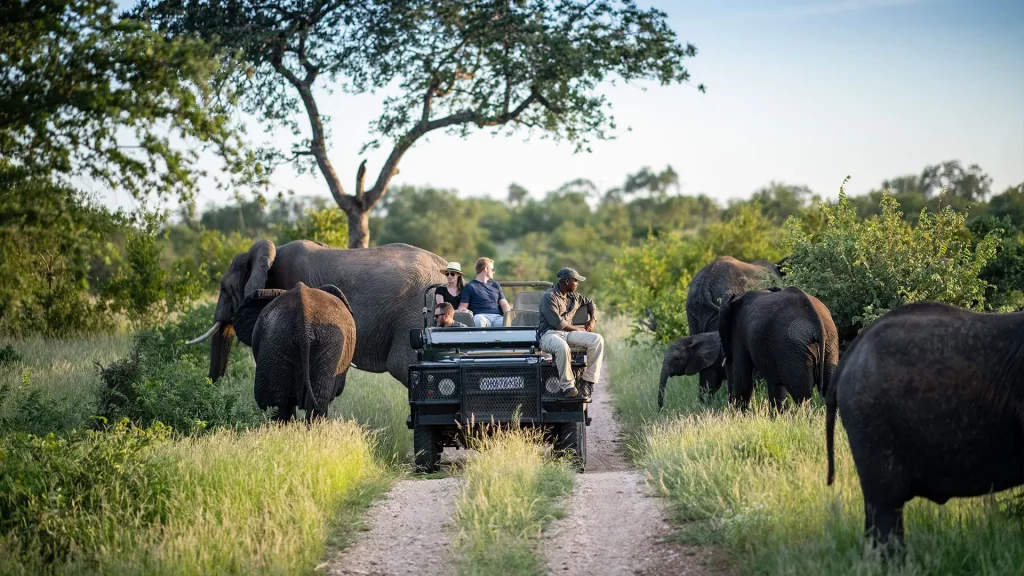
Located in northeastern South Africa, Kruger National Park is one of the largest game reserves in Africa and a must-visit destination for wildlife enthusiasts. Here is an overview of what makes this national park so special:
Overview of Kruger National Park
Covering an area of approximately 19,500 square kilometers, Kruger National Park is home to an incredible diversity of flora and fauna. The park is known for its vast savannahs, iconic baobab trees, and meandering rivers. It offers visitors a chance to experience the beauty of the African wilderness up close.
Wildlife and Safari Experiences in Kruger National Park
Kruger National Park is famous for its abundant wildlife and provides excellent opportunities for game viewing and safaris. Here are some of the incredible animals you can encounter during your visit:
1. The Big Five: Kruger National Park is home to the famous Big Five: lions, elephants, buffaloes, leopards, and rhinos. Spotting these majestic animals in their natural habitat is a thrilling experience.
2. Other Wildlife: Apart from the Big Five, the park is also home to a wide variety of other animals, including giraffes, zebras, hyenas, cheetahs, hippos, crocodiles, and numerous species of antelope.
3. Birdwatching: With over 500 bird species, Kruger National Park is a paradise for birdwatchers. Keep an eye out for the majestic African fish eagle and the colorful Lilac-breasted roller.
4. Guided Safaris: Taking a guided safari is one of the best ways to explore the park and ensure a memorable wildlife experience. Experienced guides will take you on a game drive in open safari vehicles, providing insights into the park’s ecosystem and helping you spot wildlife.
5. Self-Drive Safaris: Kruger National Park also allows visitors to explore on their own by taking self-drive safaris. The park has well-marked roads and rest camps where you can take a break and enjoy the surroundings.
Don’t forget to check out the Kruger National Park website for more information on guided tours, accommodations, and park rules and regulations.
Kruger National Park offers a unique opportunity to witness Africa’s incredible wildlife in their natural habitat. It is a must-visit destination for nature lovers and anyone seeking an unforgettable South African adventure.
Cape Winelands
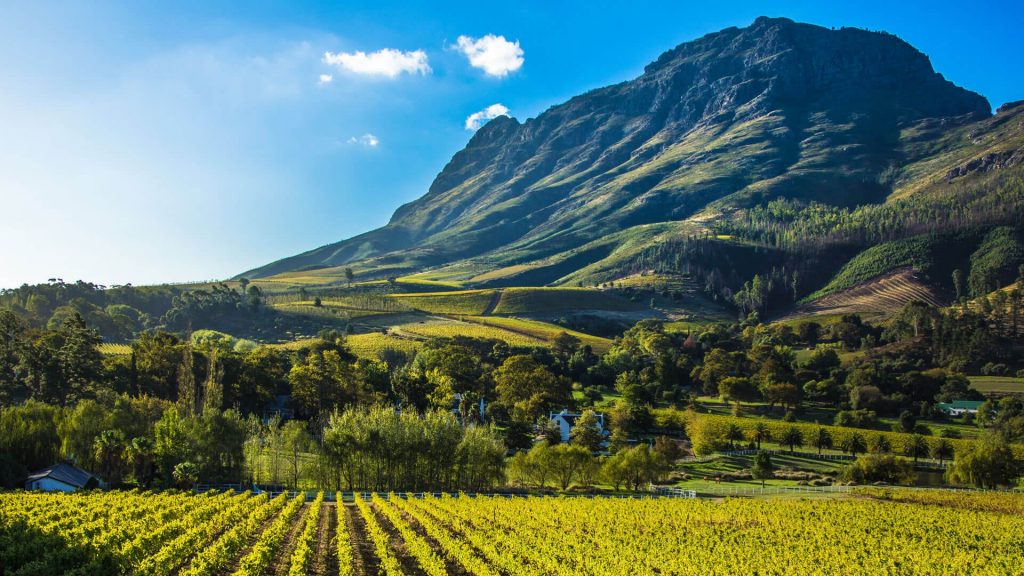
The Cape Winelands is a picturesque region in South Africa known for its stunning landscapes, vineyards, and historic towns. Located just outside of Cape Town, the Cape Winelands offer a perfect escape for wine enthusiasts and nature lovers.
Overview of Cape Winelands
The Cape Winelands region is made up of several towns and wine-producing areas, including Stellenbosch, Franschhoek, and Paarl. Here are some key highlights of the Cape Winelands:
1. Vineyards and Wineries: The Cape Winelands are home to some of the finest vineyards and wineries in South Africa. The region’s Mediterranean climate and fertile soil create perfect conditions for grape cultivation, resulting in world-class wines.
2. Historic Towns: The Cape Winelands are also known for their charming and historic towns, such as Stellenbosch and Franschhoek. These towns have preserved their Dutch colonial architecture and offer a glimpse into South Africa’s rich history.
3. Scenic Landscapes: The Cape Winelands are surrounded by breathtaking landscapes, including rolling vineyards, majestic mountains, and lush valleys. The region’s natural beauty provides a peaceful and idyllic setting for wine tasting and exploration.
4. Culinary Delights: In addition to wine, the Cape Winelands offer a culinary paradise. The region is known for its world-class restaurants, where visitors can indulge in delicious food and wine pairings.
Wine tasting and vineyard tours in Cape Winelands
Wine tasting and vineyard tours are the highlights of any visit to the Cape Winelands. Here are some popular activities to consider:
• Wine Tasting: The Cape Winelands offer countless wine tasting experiences where visitors can sample a wide variety of wines, from crisp whites to robust reds. Many wineries also offer cellar tours, allowing visitors to learn about the winemaking process.
• Vineyard Tours: Explore the vineyards and learn about the different grape varieties grown in the region. Vineyard tours often include wine tastings and insights into the winemaking process.
• Food and Wine Pairings: Many wineries in the Cape Winelands offer food and wine pairing experiences where visitors can savor local cuisine paired with wines that complement each dish.
• Cellar Tours: Take a behind-the-scenes look at the winemaking process with a cellar tour. Learn about the fermentation and aging processes and gain unique insights into the art of winemaking.
• Gourmet Dining: Many wineries have their own restaurants or partner with local chefs to offer gourmet dining experiences that showcase the region’s wines and produce.
The Cape Winelands offer a perfect blend of natural beauty, rich history, and exceptional wine. Whether you’re a wine enthusiast or simply looking to relax and enjoy the scenic landscapes, a visit to the Cape Winelands is a must-do experience in South Africa.
Robben Island
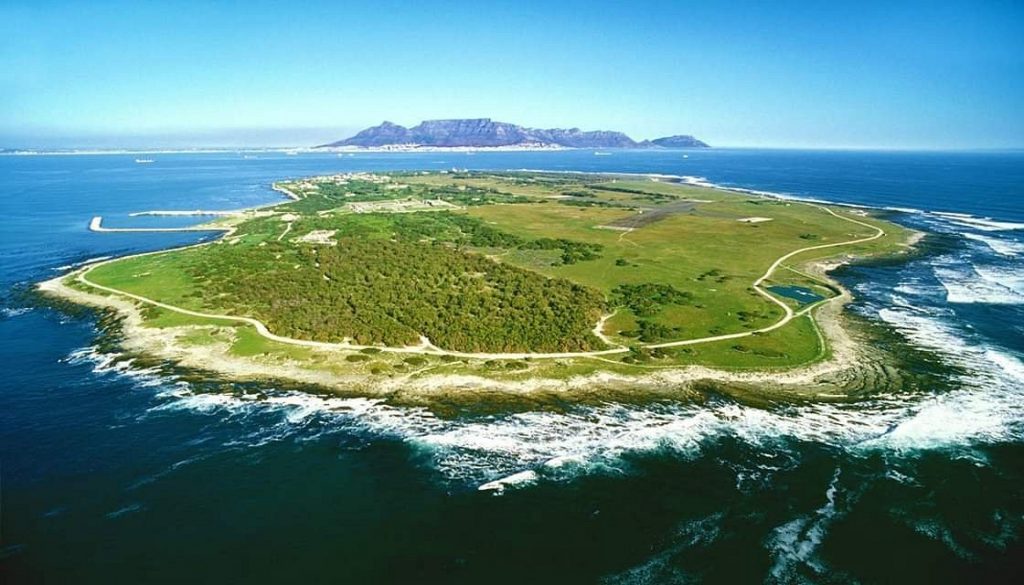
Overview of Robben Island
Robben Island is a small island located off the coast of Cape Town, South Africa. It has a rich history and is known for its historical significance, particularly as a political prison during the apartheid era. The island is now a UNESCO World Heritage Site and a popular tourist attraction, drawing visitors from around the world.
Historical significance and tours of Robben Island
Robben Island played a significant role in South Africa’s history, especially during the apartheid era. It served as a place where political prisoners, including Nelson Mandela, were held captive. Today, visitors can take guided tours of the island to learn about its history and the struggles faced by those imprisoned there.
During the tour, visitors have the opportunity to explore the Maximum Security Prison, where political prisoners were held, and see the cells where they lived. The tour also includes a visit to the lime quarry, where prisoners were forced to do manual labor, and a chance to hear personal stories from former prisoners.
Taking a tour of Robben Island is an educational and eye-opening experience, providing insight into South Africa’s past and the ongoing fight for freedom and equality. It is a must-visit attraction for anyone interested in history and social justice. You could even visit Robben Island as part of your private city tour Cape Town. This way you can visit Robben Island, take a ferry and visit other places like Bokaap and Kirstenbosch Botanical Gardens.
To learn more about Robben Island and its historical significance, you can visit here.
Garden Route
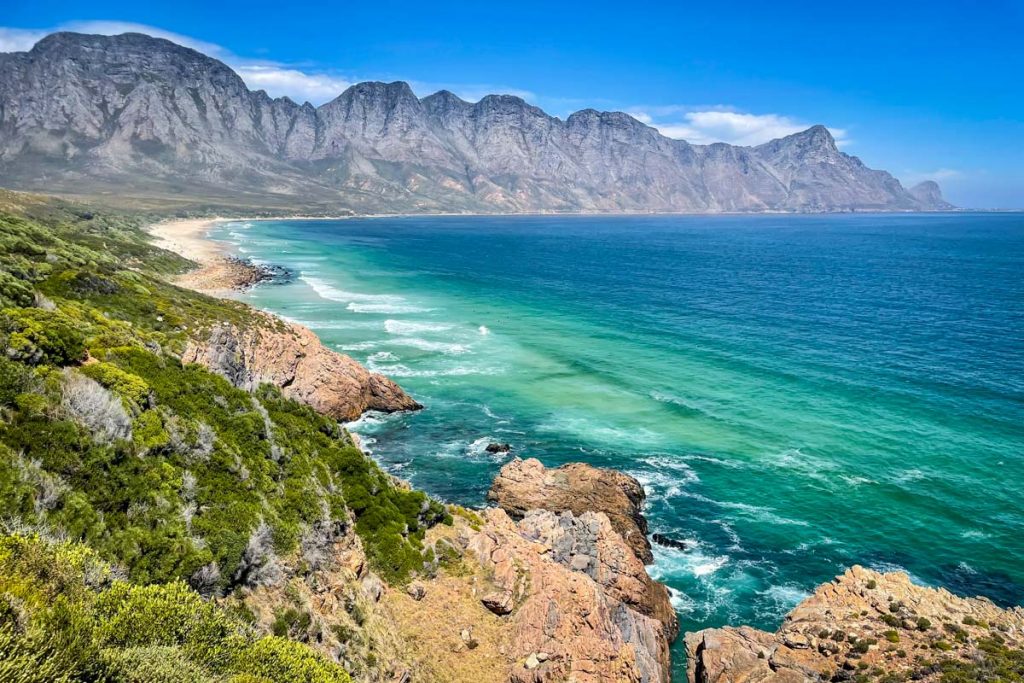
Overview of the Garden Route
The Garden Route is a picturesque stretch of coastline along the southern coast of South Africa. It is known for its stunning natural beauty, diverse wildlife, and charming towns. The route runs between Mossel Bay in the Western Cape and Storms River in the Eastern Cape, offering travelers a variety of attractions and activities to enjoy.
Scenic drives and attractions along the Garden Route
The Garden Route offers several scenic drives and attractions that make it a must-visit destination in South Africa:
1. Tsitsikamma National Park: Located at the eastern end of the Garden Route, Tsitsikamma National Park is a nature lover’s paradise. Visitors can explore ancient forests, hike along breathtaking coastal trails, and even try their hand at bungee jumping from the famous Bloukrans Bridge.
2. Knysna: Knysna is a charming town nestled on the shores of a beautiful lagoon. The town is known for its vibrant arts and crafts scene, excellent seafood restaurants, and the iconic Knysna Heads, two towering sandstone cliffs that guard the entrance to the lagoon.
3. Plettenberg Bay: Plettenberg Bay is a popular beach destination along the Garden Route. With its pristine beaches, crystal-clear waters, and abundant marine life, it is the perfect place for swimming, surfing, and whale watching during the winter months.
4. Wilderness National Park: Wilderness National Park is a paradise for outdoor enthusiasts. The park is home to a series of lakes, rivers, and wetlands, making it an ideal destination for canoeing, hiking, and birdwatching.
5. Mossel Bay: Mossel Bay is a historic harbor town with a rich maritime history. Visitors can explore the Bartolomeu Dias Museum Complex, which commemorates the first European landing in Southern Africa, or even go shark cage diving for a thrilling adventure.
The Garden Route offers a diverse range of attractions, from pristine beaches and lush forests to charming towns and thrilling outdoor activities. It is no wonder that it is considered one of the best sightseeing destinations in South Africa.
Please visit the Garden Route Wikipedia page for more information about this scenic route.
Kruger National Park
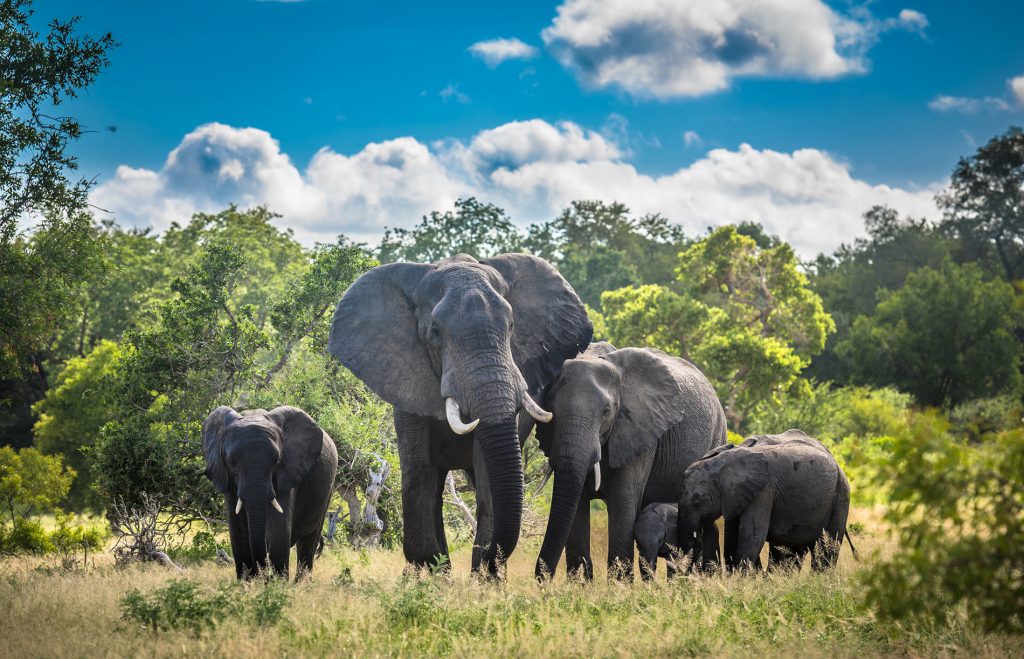
Overview of Kruger National Park
Kruger National Park is a world-renowned wildlife reserve located in northeastern South Africa. Established in 1898, it is one of the oldest and largest game reserves in Africa, spanning over 19,485 square kilometers. The park is known for its diverse flora and fauna, offering visitors a chance to witness the beauty of the South African wilderness.
The park is home to the “Big Five” game animals, including lions, elephants, rhinoceroses, leopards, and Cape buffalos. In addition to these iconic species, Kruger National Park is also teeming with other wildlife such as giraffes, zebras, cheetahs, hippos, and many species of antelope.
Visitors to Kruger National Park can explore the park through self-drive safaris, guided game drives, bush walks, and even hot air balloon rides. There are several entrance gates to the park, each providing access to different areas and ecosystems. The park is well-maintained, with various accommodation options ranging from luxury lodges to campsites.
Wildlife and safari experiences in Kruger National Park
Exploring Kruger National Park is a once-in-a-lifetime experience for wildlife enthusiasts. Here are some of the wildlife and safari experiences you can enjoy in the park:
1. Game Drives: Embark on a guided game drive to get up close and personal with the park’s wildlife. Knowledgeable guides will take you through the park, pointing out different species and sharing fascinating information about their behavior and habitat.
2. Self-Drive Safaris: Rent a car and drive through the park at your own pace. Kruger National Park has well-maintained roads and signposts, making it easy for visitors to navigate. Just make sure to follow the park rules and regulations for a safe and enjoyable experience.
3. Bush Walks: Join a guided bush walk to experience the African wilderness on foot. Accompanied by armed rangers, you will have the opportunity to learn about the smaller creatures of the park as well as gain a deeper appreciation for the ecosystem.
4. Bird Watching: Kruger National Park is a paradise for bird lovers, with over 500 bird species recorded within its boundaries. Grab your binoculars and spot as many colorful and unique bird species as you can.
5. Photography: Whether you’re a professional or an amateur photographer, Kruger National Park offers incredible opportunities to capture stunning wildlife shots. Be patient and observant, and you might witness some truly remarkable moments.
Kruger National Park is a must-visit destination for nature and wildlife enthusiasts. Plan your trip well in advance, as the park attracts visitors from around the world, especially during peak seasons. Immerse yourself in the beauty of the South African wilderness and create memories that will last a lifetime.
Blyde River Canyon
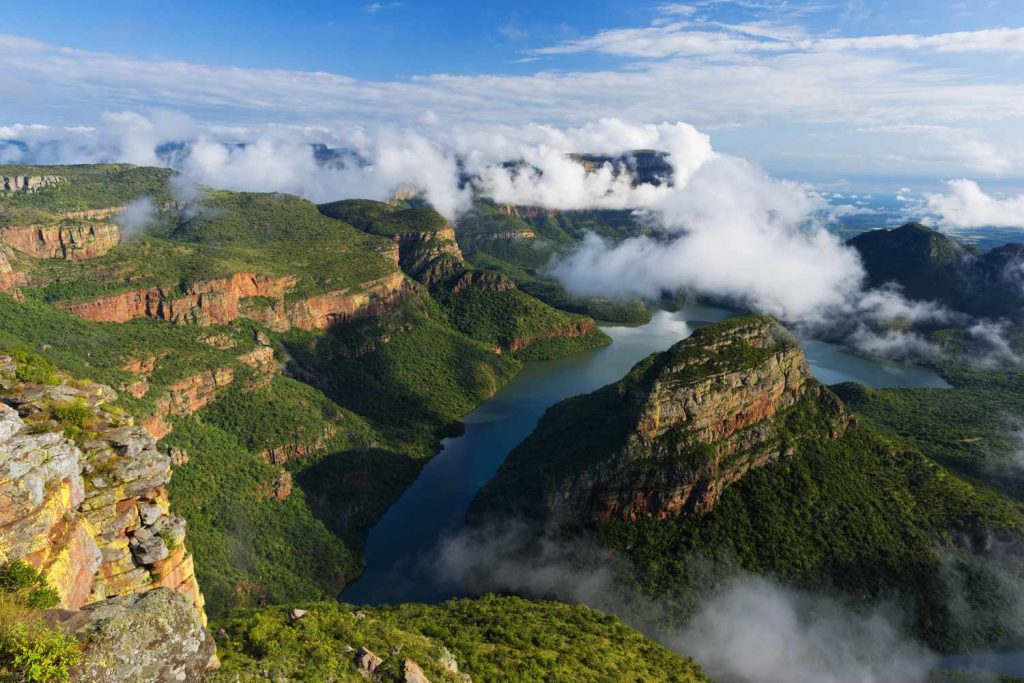
The Blyde River Canyon is one of the most breathtaking natural attractions in South Africa. Located in Mpumalanga province, it is the third-largest canyon in the world and offers spectacular scenery and diverse wildlife. Here is an overview of Blyde River Canyon and the sightseeing opportunities it offers.
Overview of Blyde River Canyon
The Blyde River Canyon stretches for approximately 25 kilometers and is carved out by the Blyde River. It is known for its towering cliffs, deep ravines, and lush vegetation. The canyon’s geological formations, including the famous Three Rondavels and Bourke’s Luck Potholes, are a testament to the power of nature.
The Three Rondavels are three distinct round mountaintops resembling traditional African huts. They offer panoramic views of the surrounding canyon and are a popular spot for photographers. Bourke’s Luck Potholes, on the other hand, are cylindrical rock formations formed by the erosive power of water.
Sightseeing and activities in Blyde River Canyon
There are several sightseeing opportunities and activities to enjoy in Blyde River Canyon:
1. Panoramic viewpoints: Take in the stunning views of the canyon from various viewpoints, including God’s Window, Wonder View, and the Lowveld Viewpoint. These vantage points offer breathtaking vistas of the surrounding landscapes.
2. Boat cruises: Explore the Blyde River Canyon from a different perspective by taking a boat cruise along the dam. These cruises offer an up-close experience of the canyon’s towering cliffs and the opportunity to spot wildlife along the riverbanks.
3. Hiking and nature trails: Lace up your hiking boots and explore the numerous hiking and nature trails in the area. The canyon is home to a variety of flora and fauna, and hiking allows you to fully immerse yourself in its natural beauty.
4. Wildlife spotting: Keep an eye out for wildlife in the canyon, including baboons, dassies (rock hyrax), and various bird species. The canyon is also home to several nature reserves, such as the Blyde River Nature Reserve and the Moholoholo Wildlife Rehabilitation Center.
5. Waterfalls: Discover the enchanting waterfalls in the Blyde River Canyon, such as Lisbon Falls, Berlin Falls, and Mac-Mac Falls. These cascades offer scenic picnic spots and opportunities to swim in natural pools.
Visiting Blyde River Canyon is like stepping into a natural wonderland. Its awe-inspiring beauty and unique geological features make it a must-visit destination for nature lovers and adventure seekers alike.
Durban Beachfront
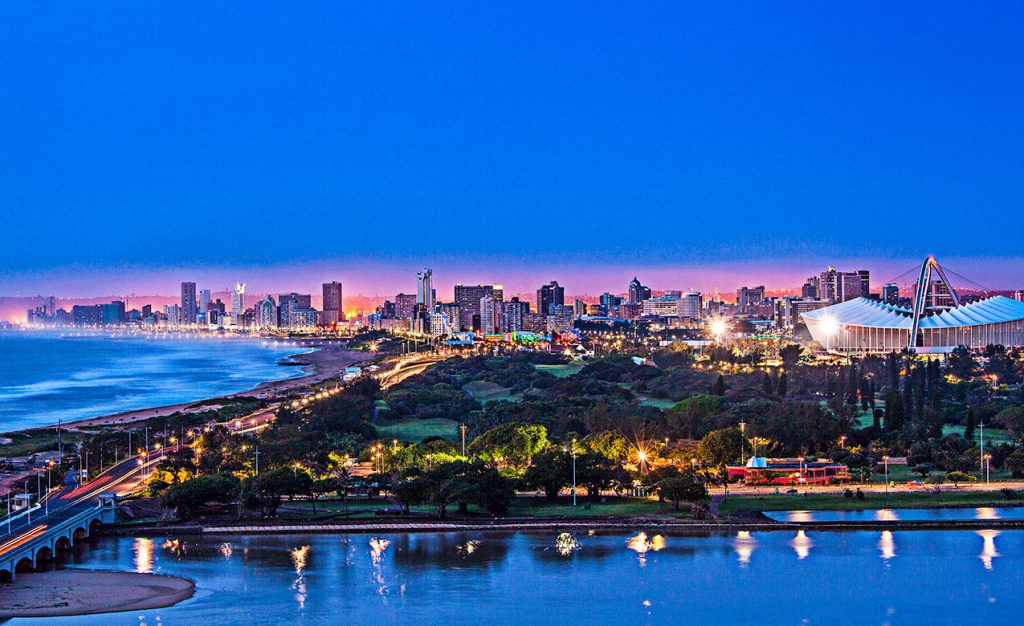
Overview of Durban Beachfront
Durban Beachfront is a popular tourist destination in South Africa known for its stunning beaches, vibrant atmosphere, and numerous attractions. Located on the east coast of South Africa, Durban Beachfront offers a mix of natural beauty, cultural experiences, and recreational activities. Here are some key highlights of the Durban Beachfront:
1. Beaches: Durban Beachfront is home to some of the best beaches in South Africa, with golden sands and warm waters that are perfect for swimming, sunbathing, and water sports.
2. Promenade: The Golden Mile promenade stretches along the beachfront and offers a scenic walkway for visitors to enjoy. It is lined with palm trees, parks, and restaurants, making it a popular spot for leisurely strolls and picnics.
3. UShaka Marine World: This world-class marine theme park and aquarium is a must-visit attraction on the Durban Beachfront. It showcases a variety of marine life, including dolphins, penguins, and sharks, and offers thrilling water slides and other attractions for all ages.
4. Moses Mabhida Stadium: The iconic Moses Mabhida Stadium is a landmark on the Durban Beachfront. Visitors can take a ride on the SkyCar to enjoy panoramic views of the city and the coastline, or try the Big Rush Big Swing for an adrenaline-pumping experience.
5. Wilson’s Wharf: Wilson’s Wharf is a popular entertainment complex that boasts a variety of restaurants, pubs, and live music venues. It’s a great place to relax, enjoy a meal, and experience Durban’s vibrant nightlife.
Durban Beachfront is a true gem in South Africa, offering a perfect blend of natural beauty, cultural experiences, and outdoor activities. Whether you’re looking to relax on the beach, explore marine life, or enjoy lively entertainment, Durban Beachfront has something for everyone.
To learn more about Durban Beachfront and its attractions, you can visit here.
Johannesburg
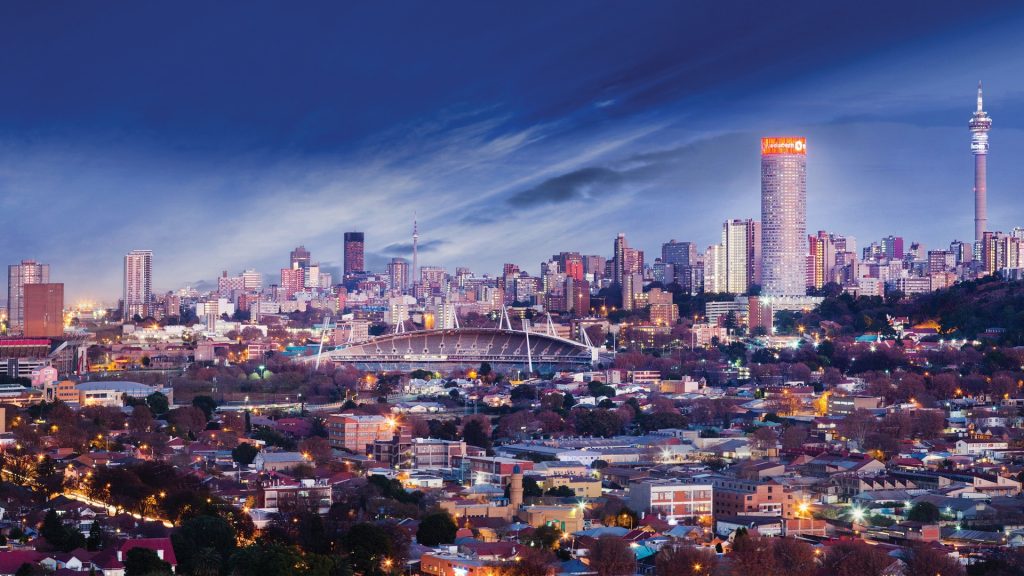
Overview of Johannesburg
Johannesburg, also known as Jo’burg or Jozi, is the largest city in South Africa and one of the top tourist destinations in the country. It is a vibrant and bustling city with a rich history and diverse culture. Here are some key highlights from Johannesburg:
- Apartheid Museum: A must-visit attraction that provides insight into South Africa’s history of racial segregation and the struggle for freedom The museum showcases various exhibits and artifacts that tell the story of apartheid and its impact on the country.
- Constitution Hill: Located on the site of a former prison, Constitution Hill is now home to the Constitutional Court of South Africa. Visitors can take guided tours to learn about the country’s constitutional democracy and the fight for human rights.
- Nelson Mandela Square: A popular gathering spot in the heart of Sandton, Nelson Mandela Square features a bronze statue of the iconic South African leader. It is surrounded by upscale shops, restaurants, and hotels.
- Soweto: A township outside of Johannesburg, Soweto played a significant role in the struggle against apartheid. Visitors can take guided tours to explore historic sites such as the former homes of Nelson Mandela and Archbishop Desmond Tutu.
- Gold Reef City is an amusement park and entertainment complex that offers a combination of thrilling rides, live shows, and a glimpse into Johannesburg’s gold mining history. Visitors can explore an underground mine and learn about the city’s golden past.
These are just a few attractions that make Johannesburg a fascinating destination for sightseeing. There is much more to discover and experience in this vibrant city. For more information, check out the Johannesburg Wikipedia page.
Cape Point
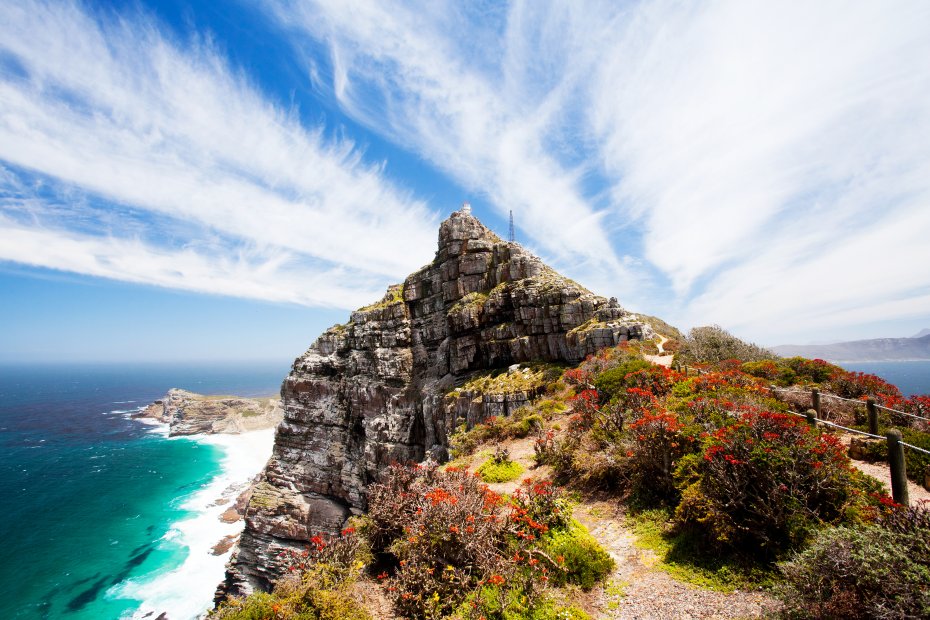
Located at the southwestern tip of the Cape Peninsula, Cape Point is a must-visit destination in South Africa. It is part of Table Mountain National Park and offers breathtaking views of the rugged coastline and the Atlantic Ocean. Here is an overview of Cape Point and what you can expect when visiting:
Overview of Cape Point
Cape Point is famous for its dramatic cliffs, pristine beaches, and diverse flora and fauna. The iconic Cape Point Lighthouse, perched on top of the cliffs, is a popular attraction and offers panoramic views of the surrounding area. The area is also home to various hiking trails, allowing visitors to explore the natural beauty of the Cape Peninsula.
Scenic beauty and activities at Cape Point
At Cape Point, you can experience the following:
- Scenic Drives: Enjoy a scenic drive along the Cape Peninsula, with stunning views of the ocean and the rugged coastline. The Cape Point Nature Reserve offers beautiful viewpoints, perfect for capturing memorable photographs.
- Hiking: Explore the various hiking trails in the area and immerse yourself in the natural beauty of Cape Point. One popular trail is the Cape of Good Hope Trail, which takes you along the coastline and offers spectacular vistas.
- Wildlife: Cape Point is home to a diverse range of wildlife, including baboons, ostriches, and various bird species. Keep an eye out for these creatures as you explore the area.
- Beaches: Relax on the pristine beaches of Cape Point and soak up the sun. Diaz Beach and Buffels Bay are two popular options for beachgoers.
- Whale Watching: If you visit during the whale season (typically from July to November), you may have the opportunity to spot Southern Right Whales breaching and frolicking in the ocean.
For more information about Cape Point and its attractions, you can visit its Wikipedia page, or visit a tour agency to learn more about booking a Cape Point private tour.
Cape Point offers a unique blend of natural beauty and outdoor activities, making it an ideal destination for sightseeing and exploration in South Africa. It’s always recommended to consider hiring a private driver Cape Town to personally take you on a Cape Point tour for a customized experience and personalized itinerary to make the most of your tour.
Conclusion
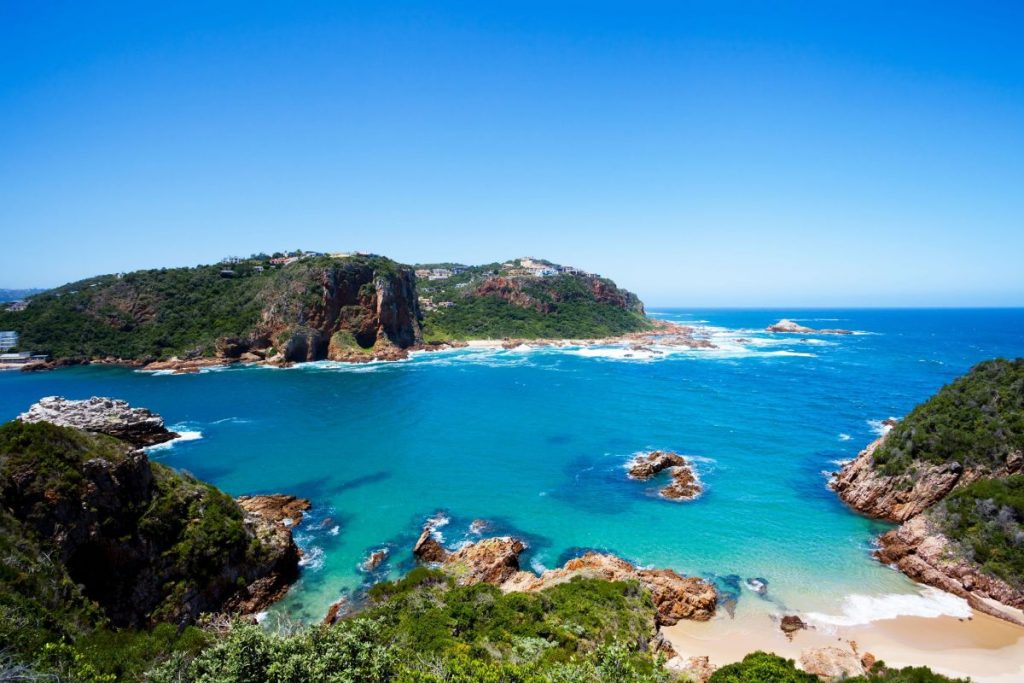
Top South African sightseeing attractions and destinations
South Africa is a country rich in natural beauty and cultural diversity, offering a wide range of sightseeing attractions and destinations. Here are some of the top places to visit in South Africa:
- Cape Town is known for its stunning landscapes, vibrant city life, and iconic landmarks such as Table Mountain and Cape Point.
- Kruger National Park is one of Africa’s largest game reserves, where visitors can spot the Big Five and enjoy breathtaking safari experiences.
- The Garden Route is a scenic stretch of coastline that offers beautiful beaches, lush forests, and charming towns like Knysna and Plettenberg Bay.
- Robben Island is a historic site where Nelson Mandela was imprisoned for 18 years, offering insight into South Africa’s struggle against apartheid.
- Drakensberg Mountains: A UNESCO World Heritage Site with majestic peaks, stunning landscapes, and opportunities for hiking and outdoor activities
- The Winelands: Located near Cape Town, this region is famous for its vineyards and wine production, offering private wine tours Cape Town and picturesque landscapes.
Key points for travelers visiting South Africa
- Safety: While South Africa has many beautiful attractions, it’s important for travelers to be aware of their surroundings and take precautions to ensure their safety.
- Wildlife encounters: When visiting wildlife reserves and national parks, it’s essential to respect the animals and follow guidelines to ensure their well-being and your own safety.
- Cultural sensitivity: South Africa is a diverse country with different cultures and languages. It’s important to be respectful and open-minded when interacting with locals and learning about their traditions.
- Weather: South Africa has a varied climate, so it’s essential to pack accordingly and be prepared for different weather conditions.
- Transportation: It’s recommended to research transportation options like booking a private Cape Town shuttle service in advance to navigate the country efficiently and safely.
Visiting South Africa offers a unique and unforgettable experience, combining breathtaking landscapes, diverse wildlife, and a rich cultural heritage. By planning well and being open to new experiences, travelers can create memories that will last a lifetime.
Frequently Asked Questions about South Africa Travel
Q: Is it safe to travel to South Africa?
A: South Africa is generally a safe travel destination, but like any other country, it’s important to take precautions. Be aware of your surroundings, avoid isolated areas at night, and follow local advice on safety. Take common-sense precautions to secure your belongings and be cautious of petty theft in crowded areas.
Q: What are the top tourist attractions in South Africa?
A: South Africa offers a diverse range of tourist attractions, including:
- Kruger National Park for wildlife safaris.
- Table Mountain in Cape Town, known for its panoramic views.
- The Cape Winelands, famous for its vineyards and wine tasting.
- The Garden Route, a scenic coastal drive with beautiful landscapes.
- Robben Island, where Nelson Mandela was imprisoned.
- Johannesburg, with attractions like the Apartheid Museum and Soweto.
- The stunning Drakensberg Mountains and Blyde River Canyon.
- The historical town of Stellenbosch, renowned for its Cape Dutch architecture and wine estates.
Get ready to discover some incredible Cape Town private tour packages, perfect for every kind of traveler! Whether you’re on a solo adventure, enjoying a family vacation, or exploring with a group, there’s a day trip or multi-day journey around Cape Town just waiting for you. Tailored to fit your needs, these experiences promise to make your time in the Mother City truly unforgettable. So, pack your bags and let’s find the perfect Cape Town adventure for you!
Q: When is the best time to visit South Africa?
A: The best time to visit South Africa depends on your interests and the regions you plan to explore. Generally, the months from May to September (winter and early spring) offer pleasant weather, especially for wildlife viewing. The summer months from November to February can be hot, and coastal areas are popular during this time. Consider both weather and the activities you want to engage in when planning your visit.
Q: Do I need a visa to visit South Africa?
A: The visa requirements for South Africa vary based on your nationality. Many countries have visa exemption agreements with South Africa, allowing for visa-free travel for a specific duration. It’s important to check the visa requirements based on your citizenship and the purpose and duration of your visit. Ensure you have the necessary visas in place before traveling to South Africa.
Q: What is the local currency in South Africa?
A: The currency of South Africa is the South African Rand (ZAR). It’s advisable to carry some local currency for small expenses and when visiting areas with limited card payment options. ATMs are widely available, and credit cards are accepted in most hotels, restaurants, and shops.
Q: What languages are spoken in South Africa?
A: South Africa has 11 official languages, including English, Afrikaans, Zulu, Xhosa, Sotho, and more. English is widely spoken and understood, particularly in tourist areas, major cities, and the tourism industry. You’ll generally have no problem communicating in English.
Q: What are the popular outdoor activities in South Africa?
A: South Africa offers numerous outdoor activities for nature lovers and adventure enthusiasts. Some popular activities include:
- Wildlife safaris and game drives in national parks and private reserves.
- Hiking and trekking in scenic areas like the Drakensberg Mountains or Table Mountain.
- Shark cage diving and whale watching along the coastline.
- Watersports such as surfing, kayaking, and snorkeling in coastal regions.
- Hot air balloon rides over picturesque landscapes.
- Bungee jumping, zip-lining, and skydiving for adrenaline seekers.
Q: Are there any health concerns for travelers to South Africa?
A: It’s advisable to consult with a healthcare professional or travel clinic before visiting South Africa. Routine vaccinations should be up to date, and it’s recommended to inquire about specific vaccinations based on the areas you plan to visit. Malaria precautions might be necessary for certain regions, particularly during the rainy season.
Q: How is the transportation system in South Africa?
A: South Africa has a well-developed transportation system that includes domestic flights, buses, trains, private taxi services in Cape Town and rental cars. Major cities have reliable public transportation options like buses, taxis, and ride-hailing services. It’s recommended to plan your private transportation from Cape Town in advance based on your itinerary and preferences.
Q: What should I pack for a trip to South Africa?
A: When packing for South Africa, consider the following essentials:
- Comfortable clothing suitable for various weather conditions.
- Layered clothing for temperature fluctuations, especially in winter.
- Sturdy walking shoes for outdoor activities and hikes.
- Sunscreen, a hat, and sunglasses for sun protection.
- Insect repellent, particularly if visiting malaria-prone areas.
- Adapters for South Africa’s plug type (Type D or M).
- Valid travel documents, including passports and necessary visas.
These FAQs provide general information about tourism in South Africa, but it’s important to conduct further research, check the latest travel advisories, and consult with relevant authorities or travel experts before planning your trip.
